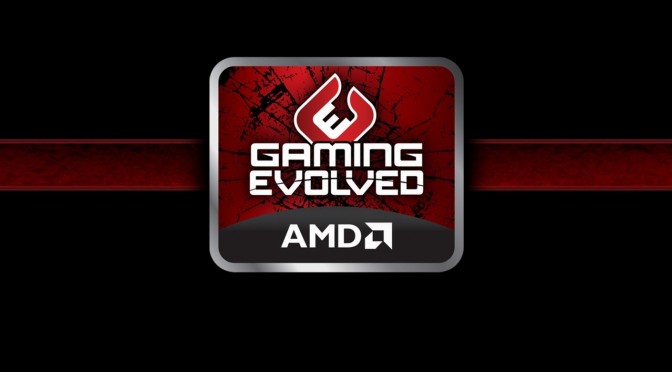AMD has released a new driver for its graphics cards. According to its changelog, this new driver features performance improvements for Rise of the Tomb Raider and Ashes of the Singularity – Benchmark 2, as well as Crossfire profiles for The Division and XCOM 2.
Those interested can download this new driver from here.
And here is the complete changelog for the AMD Radeon Software Crimson Edition 16.2:
Radeon Software Crimson Edition 16.2 Highlights
- AMD has partnered with Stardock in association with Oxide to bring gamers Ashes of the Singularity – Benchmark 2.0 the first benchmark to release with DirectX® 12 benchmarking capabilities such as Asynchronous Compute, multi-GPU and multi-threaded command buffer Re-ordering. Radeon Software Crimson Edition 16.2 is optimized to support this exciting new release.
- The SteamVR Performance Test: we are pleased to report that our Radeon R9 390, Nano, and Fury series GPUs are all able to achieve ‘VR Recommended’ status, the highest achievable level of experience possible. In addition to that, our affinity multi-GPU feature is already showing significant performance uplift over a single GPU on Radeon cards in the aforementioned benchmark
- Performance and quality improvements for
- Rise of the Tomb Raider™
- Ashes of the Singularity – Benchmark 2
- Crossfire Profiles available for
- The Division
- XCOM 2
Resolved Issues
- A black screen/TDR error may be encountered when booting a system with Intel + AMD graphics and an HDMI monitor connected
- Choppy gameplay may be experienced when both AMD Freesync™ and AMD Crossfire™ are both enabled
- Display corruption may be observed after keeping system idle for some time
- Fallout 4 – Flickering may be experienced at various game locations with the v1.3 game update and with AMD Crossfire™ enabled
- Fallout 4 – Foliage/water may ripple/stutter when game is launched in High/Ultra settings mode
- Fallout 4 – Screen tearing in systems with both AMD Freesync™ and AMD Crossfire™ enabled if game is left idle for a short period of time
- Fallout 4 – Thumbnails may flicker or disappear while scrolling the Perk levels page
- Far Cry 4 – Stuttering may be observed when launching the game with AMD Freesync™ and AMD Crossfire™ enabled
- FRTC options are displayed on some unsupported laptop configurations with Intel CPU’s and AMD GPU’s
- Radeon Settings may sometimes fails to launch with a “Context Creation Error” message
- Rise of the Tomb Raider™ – Corruption can be observed at some locations during gameplay
- Rise of the Tomb Raider™ – Flickering may be experienced at various game locations when the game is left idle in AMD Crossfire™ mode under Windows 7
- Rise of the Tomb Raider™ – Game may intermittently crash or hang when launched with very high settings and AA is set to SMAA at 4K resolution
- Rise of the Tomb Raider™ – Lara Croft’s hair may flicker in some locations if the Esc key is pressed
- Rise of Tomb Raider™ – A TDR error may be observed with some AMD Radeon 300 Series products after launching the “Geothermal Valley” mission
- The AMD Overdrive™ memory clock slider does not show original clock values if memory speeds are overclocked
- World of Warcraft runs extremely slowly in quad crossfire at high resolutions
Known Issues
- A few game titles may fail to launch or crash if the Gaming Evolved overlay is enabled. A temporary workaround is to disable the AMD Gaming Evolved “In Game Overlay”
- Star Wars™: Battlefront – Corrupted ground textures may be observed in the Survival of Hoth mission
- Cannot enable AMD Crossfire with some dual GPU AMD Radeon HD 59xx and HD 79xx series products
- Fallout 4 – In game stutter may be experienced if the game is launched with AMD Crossfire enabled
- XCOM 2 – Flickering textures may be experienced at various game locations
- Rise of the Tomb Raider™ – The game may randomly crash on launch if Tessellation is enabled
- Core clocks may not maintain sustained clock speeds resulting in choppy performance and or screen corruption

John is the founder and Editor in Chief at DSOGaming. He is a PC gaming fan and highly supports the modding and indie communities. Before creating DSOGaming, John worked on numerous gaming websites. While he is a die-hard PC gamer, his gaming roots can be found on consoles. John loved – and still does – the 16-bit consoles, and considers SNES to be one of the best consoles. Still, the PC platform won him over consoles. That was mainly due to 3DFX and its iconic dedicated 3D accelerator graphics card, Voodoo 2. John has also written a higher degree thesis on the “The Evolution of PC graphics cards.”
Contact: Email

